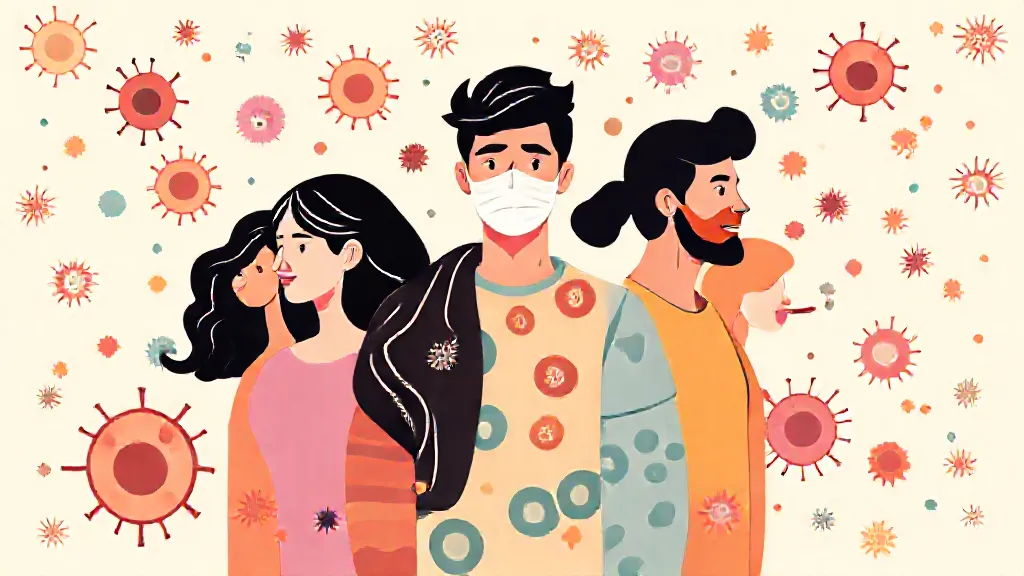The human immune system is a complex network that protects us from infections caused by bacteria, viruses, fungi, and parasites. However, not everyone responds to infections in the same way. Some individuals seem to have a natural resistance to infections, leading researchers to explore the underlying factors contributing to this phenomenon.
Understanding these factors can provide insights into disease prevention and treatment strategies.
Genetic Factors Influencing Immunity
Genetics play a crucial role in determining an individual's susceptibility to infections. Certain genes are responsible for producing proteins that are essential for immune function.
For instance, variations in the human leukocyte antigen (HLA) genes can influence how effectively the immune system recognizes and responds to pathogens. Studies have shown that individuals with specific HLA haplotypes are better equipped to fight off infections like HIV and tuberculosis. Moreover, genetic mutations, such as those affecting the CCR5 gene, can confer resistance to specific viruses, illustrating the importance of genetic diversity in immune responses.
The Role of Microbiome in Infection Resistance
The human microbiome, which consists of trillions of microorganisms residing in our bodies, plays a significant role in shaping our immune system. A diverse and balanced microbiome can enhance the body's ability to fend off infections. Research indicates that individuals with a rich variety of gut bacteria tend to exhibit stronger immune responses.
Probiotics and dietary fibers can promote microbiome diversity, suggesting that lifestyle choices related to diet can influence infection resistance. Furthermore, the interaction between the microbiome and the immune system is a dynamic process, where a healthy microbiome can help train the immune system to distinguish between harmful and harmless agents.
Environmental Influences on Immune Function
Environmental factors, including exposure to pathogens, pollution, and lifestyle, also impact an individual's resistance to infections.
For example, people living in rural areas may develop stronger immune systems due to regular exposure to a variety of microbes compared to those in urban settings. Moreover, chronic stress and poor nutrition can weaken immune responses, making individuals more susceptible to infections. Understanding these environmental influences can help public health officials devise strategies to enhance community health and resilience against infectious diseases.
Lifestyle Choices and Their Impact on Immunity
Lifestyle choices, such as diet, exercise, and sleep, significantly affect immune health. Regular physical activity has been shown to boost immune function by promoting good circulation and reducing inflammation. Conversely, a sedentary lifestyle can lead to obesity, which is associated with impaired immune responses.
Additionally, sleep is vital for immune health; during deep sleep, the body produces cytokines, proteins that aid in fighting infections. Thus, maintaining a healthy lifestyle can enhance an individual's ability to resist infections.
Age as a Factor in Infection Resistance
Age is another critical factor influencing infection resistance.
Infants possess immature immune systems, making them more vulnerable to infections. Conversely, the elderly often experience a decline in immune function, known as immunosenescence, which increases their susceptibility to infections. Understanding how age affects immune responses can guide vaccination strategies and public health initiatives aimed at protecting vulnerable populations.
The Impact of Vaccination on Infection Resistance
Vaccination is one of the most effective ways to enhance resistance to infections. Vaccines work by training the immune system to recognize and combat specific pathogens, thereby reducing the risk of disease. The effectiveness of vaccines can vary among individuals due to genetic and environmental factors, emphasizing the need for personalized vaccination strategies.
Furthermore, ongoing research into new vaccine technologies, such as mRNA vaccines, holds promise for improving immune responses and combating emerging infectious diseases.
Research Advances and Future Directions
Ongoing research is crucial for unraveling the complexities of immune resistance. Advances in genomics, microbiome studies, and immunology are paving the way for new therapies and preventive measures.
For instance, personalized medicine approaches that consider an individual's genetic makeup and lifestyle could lead to tailored interventions for infection prevention. Additionally, understanding the mechanisms behind natural resistance can inspire the development of novel vaccines and treatments.
Conclusion: The Importance of Understanding Infection Resistance
Understanding what makes some people resistant to infections is essential for improving public health outcomes.
By exploring genetic, environmental, and lifestyle factors, researchers can develop targeted strategies to enhance immune function and reduce the burden of infectious diseases. As science continues to advance, the hope is that these insights will lead to innovative approaches in disease prevention and management, benefiting individuals and communities alike.
